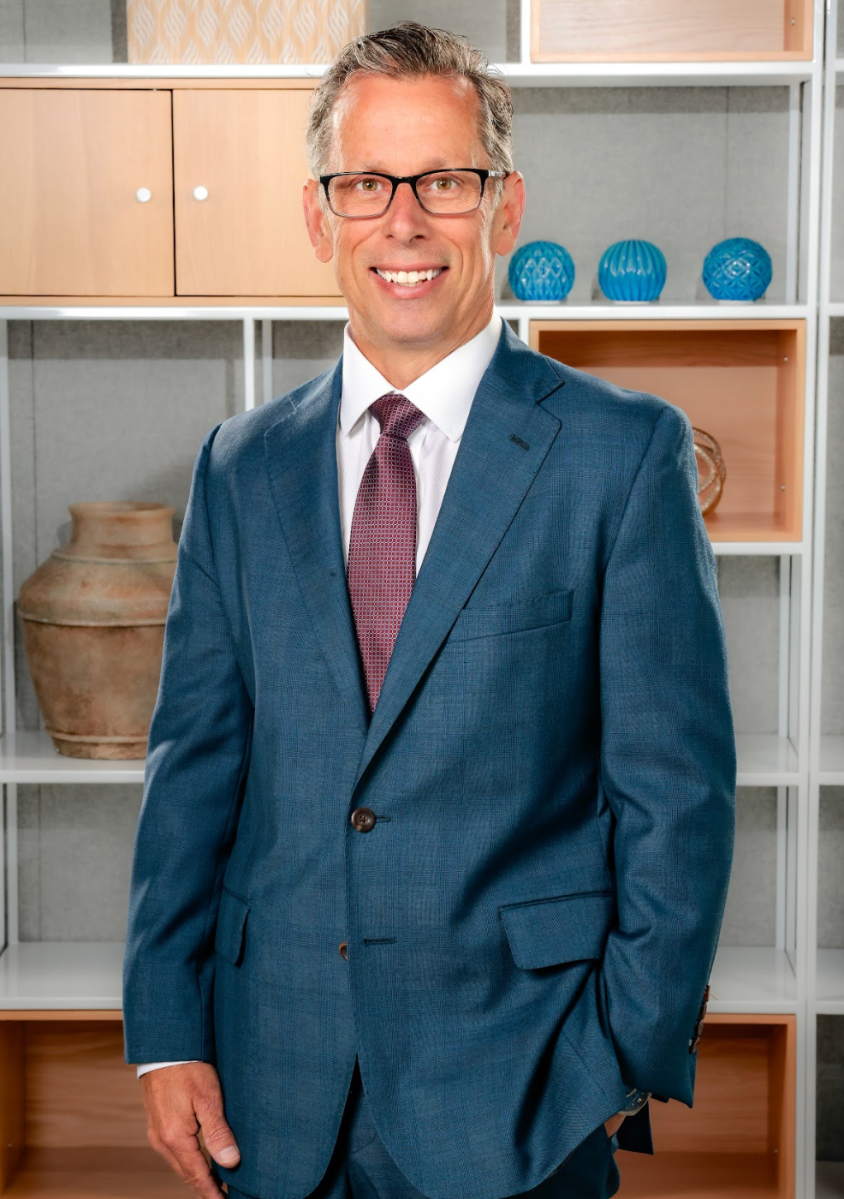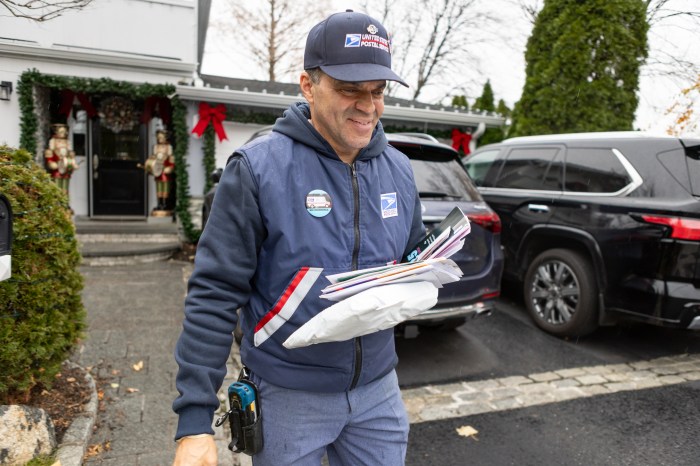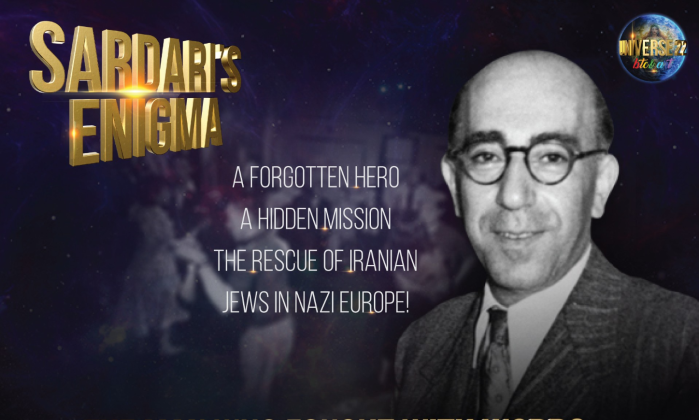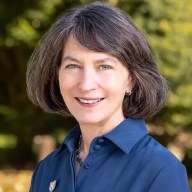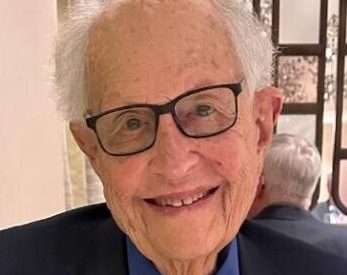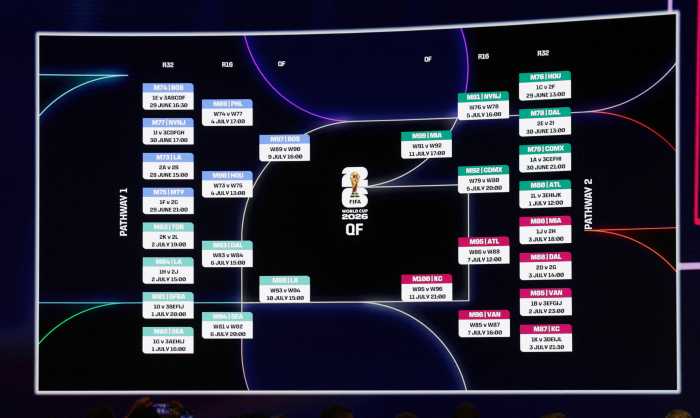Northwell has a new leader for the first time in 23 years: Dr. John D’Angelo, a Bronx native who’s been working in medicine for more than a quarter century.
Formerly one of Northwell’s executive vice presidents, D’Angelo fills the shoes of Michael Dowling, Northwell’s first CEO and president,
who stepped down to act in an advisory capacity to the hospital.
One of 21 cousins from a tight-knit Bronx family, D’Angelo said his path into medicine was a natural one.
“Ever since I was a little kid, I was always very good at math and science,” D’Angelo said. “I was the one who always did well in school. I think I was number 13 or 14 in line, the second to go to college, first in my family. Since my early days, everybody in my family was just like, ‘Oh, John’s gonna be a doctor.’ It stuck with me.”
He said his father and community provided him with the example he modeled himself after as he chased his dreams at Stonybrook’s medical school and climbed the ranks for over two decades at Northwell.
“I have always been very in tune to helping people. I watched my father around the community for his whole life, helping people with tasks, driving people to their doctor’s appointments,” D’Angelo continued. “He was an electrician. I’d always carry his tool belt and help him as he helped other people fix things in their apartments or their houses.”
“It was a combination of that sense of community, wanting to help people and the fact that I really enjoyed math and science,” he added. “One thing just led to another.”
D’Angelo described his climb from ER doctor to CEO in a similar way, adding that leading has always come naturally to him since his first high school job at Burger King, where he was promoted to production manager within two months.
“Leading is just part of my nature,” he said. I never actually sought any of the leadership positions that I ended up in. Just through getting involved, I’ve always found myself being asked to take on leadership roles, whether it was on a project or a department.”
“I really enjoy it,” he added. “It’s a great privilege to be asked to lead.”
His actions back up his words: When the clock struck midnight on his first day as CEO, D’Angelo began a tour of Northwell’s hospitals, starting in Greenwich Village’s emergency department to be there with his staff during the night shift.
“Subsequently, between midnight and 6 a.m., I visited Greenwich Village, Lenox Hill Hospital, Norwalk Hospital in Connecticut and Phelps Hospital in Westchester,” D’Angelo said. “I took a few hours of rest, then I went to 10 more sites on Long Island. I went to about 10 or 11 p.m. that night, walking the floors, talking with the staff.”
“I felt it was important on my first day to get out there and talk to people,” he said.
His first job out of school was as an emergency doctor at Holyoke Hospital in Massachusetts. He then moved back to New York and worked his way up through Northwell’s ranks, from emergency medicine physician in Glen Cove to streamlining system operations during and after the COVID-19 pandemic as chief of integrated operations to overseeing a network of six hospitals, more than 270 ambulatory practice locations and 24,000 employees, serving 2.8 million people, most recently.
“Sometimes I do miss being at the bedside and helping people in that way,” he said about moving away from direct care into leadership responsibilities. “I enjoyed impacting one person at a time, but now I can impact millions of lives. As my leadership roles have grown, I take a lot of pride and also put a lot of value in that.”
Through the years, he said he’s held onto two core principles.
“The first is: Are we doing the best we can for our patients? The second is: Are we doing the best we can for the people who take care of the patients? That’s always what motivated me,” D’Angelo said. “If you bring the conversation back to these two things, you’re going to make the right decision or you’re going to get everybody motivated around the right decision.”
D’Angelo said he is motivated to push Northwell to become better by ensuring care remains local as the health system grows, supporting staff, improving chronic disease treatment and integrating more technology into the health system’s care.
“One thing that’s been special about Northwell is we don’t rest on our laurels,” he said. “We are always challenging ourselves to do things differently. We ask, ‘How do we get better? How do we challenge the status quo?’ I don’t plan on just standing still.”
He said he would concentrate on optimizing the system’s operations without losing connection to the local communities it serves, investing in Northwell staff and driving research and innovation in medicine.
“I’m very focused on the growing epidemic of chronic disease in the country,” D’Angelo said. “Over the last several decades, you saw doubling and tripling of obesity, diabetes and hypertension, and you’ve seen successes in how we manage heart disease and cancer, which means people are living longer, but with more chronic disease.”
“If you take that and then you look at the demographic evolution that’s happening with the aging population, over the next five to 10 years, there’ll be a much bigger portion of the population in that post-retirement age compared to the number of workers. When you tie that with projections on workforce shortages in healthcare, especially doctors and nurses, I’m very focused on Northwell not only reacting, but leading, in redefining how we deliver care.”
“I don’t think the way we do it today is going to meet those demands,” D’Angelo said. “We need to get more proactive and precise…to keep people healthier and reduce that burden of chronic disease. We need to think differently about how we push care out into communities.”
He said he thinks technology will help Northwell enable that relationship. He has been helping to lead the hospital through a digital overhaul for the past few years and wants to leverage patient data even further to better support people.
“With the data that’s out there, there’s no reason why we can’t get to a state where we could do more proactive outreach to people and say, ‘Hey, we noticed you just turned 50 and we know you quit smoking two years ago. You actually would benefit from lung cancer screening. We see you live in Babylon. We have three open slots next week at our Great South Bay imaging center. Would you like us to set you up with that?’”
He believes technological advancement will “revolutionize” care and help prevent burnout in healthcare workers.
“It’s going to help us reduce all the administrative burden that’s on our workforce, which is really leading to a lot of burnout in healthcare, and it’s going to help us with patients in terms of monitoring, intervention, earlier diagnosis, earlier detection,” D’Angelo said. “I think it’s really going to amplify the capabilities of what we can do.”
On Long Island specifically, he said he is working to continuously expand Northwell’s behavioral health offerings.
“We do a ton of work with faith-based organizations, community-based organizations. We’re in hundreds of schools and mentorship programs,” D’Angelo said. “On Long Island in particular, we’re really focused on this. We see a lot of growing mental health kind of challenges in our young people…We’re in this for overall societal wellness and overall community need.”
D’Angelo said he is grateful for the opportunity to contribute to Northwell’s healthcare in this way.
“It’s really a privilege and a big responsibility that we take on in medicine,” D’Angelo said. “It’s an amazing opportunity to have a positive impact on people’s lives, whether it’s at times that they’re having their worst day ever and they’re in crisis and how we help people live healthier, longer and more fulfilling lives. In leadership, I get to support people who are similar in those goals.”
Read more: Northwell’s Cohen Children’s named top pediatric hospital in state




